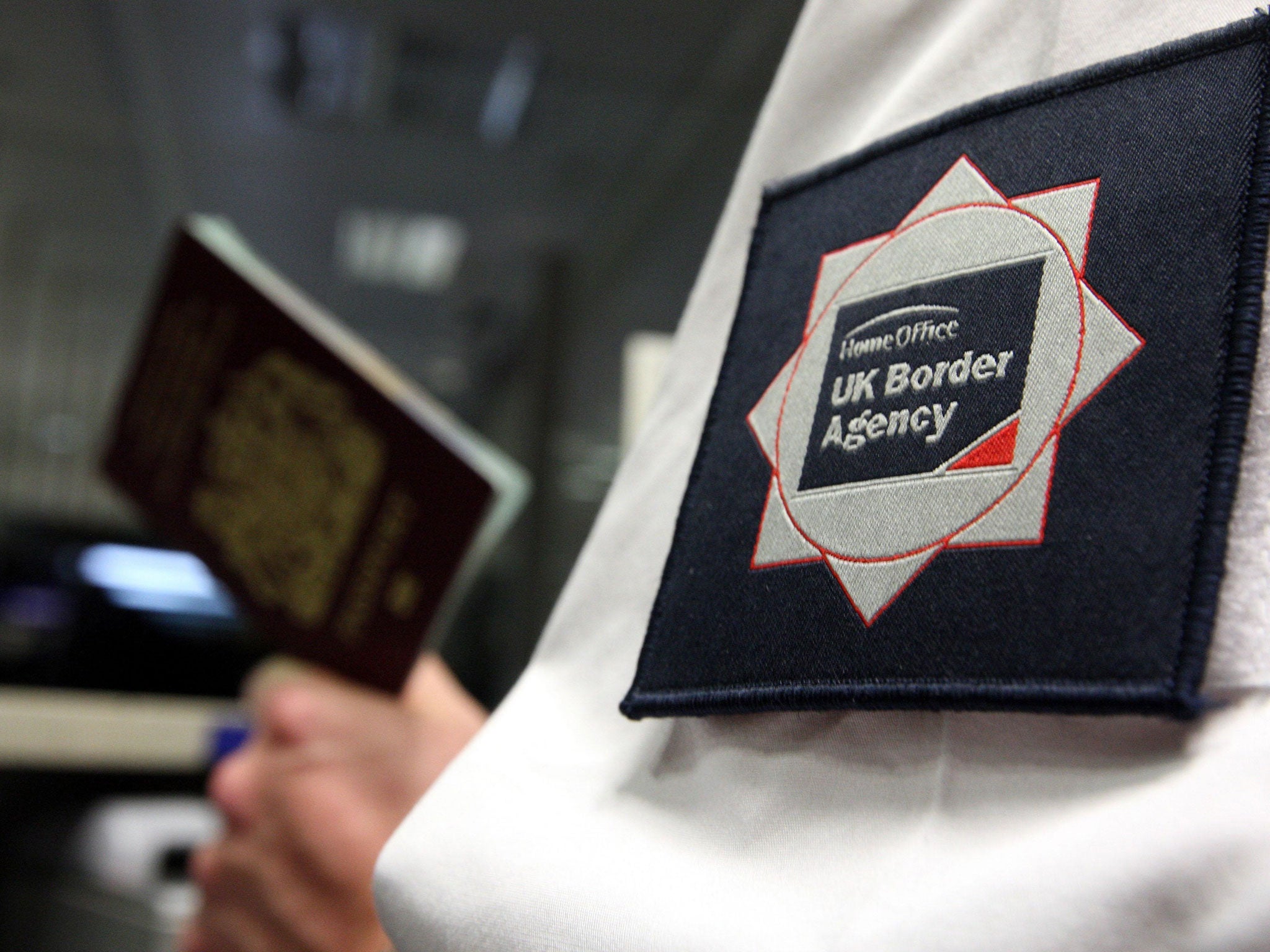Net migration on rise despite David Cameron's pledge to cut numbers by election
But actual number of migrants entering UK fell slightly to 503,000 in year to end of June

Your support helps us to tell the story
From reproductive rights to climate change to Big Tech, The Independent is on the ground when the story is developing. Whether it's investigating the financials of Elon Musk's pro-Trump PAC or producing our latest documentary, 'The A Word', which shines a light on the American women fighting for reproductive rights, we know how important it is to parse out the facts from the messaging.
At such a critical moment in US history, we need reporters on the ground. Your donation allows us to keep sending journalists to speak to both sides of the story.
The Independent is trusted by Americans across the entire political spectrum. And unlike many other quality news outlets, we choose not to lock Americans out of our reporting and analysis with paywalls. We believe quality journalism should be available to everyone, paid for by those who can afford it.
Your support makes all the difference.David Cameron’s drive to allay public fears over immigration suffered a setback when official figures showed a surge of people coming to Britain from southern Europe.
Net migration has risen for the first time for two years. The figures emerged a day after the Prime Minister announced a crackdown on state benefits to Romanians and Bulgarians, who win the right to work in the UK in January.
Some 59,000 people came from long-standing European Union members in the 12 months to June, up from 41,000 a year earlier, according to the Office for National Statistics. There were big rises from countries with economic woes – including Spain, Italy, Portugal and Greece.
The difference between the number of people entering and leaving was 182,000, up from 167,000 the previous year, as emigration dropped to its lowest level since 2001. Ministers pointed to a drop in immigration from outside the EU. But the overall rise was a blow to Mr Cameron, who pledged to bring net migration below 100,000 by the 2015 election.
Theresa May, the Home Secretary, said the figures “show the achievements we have made, but they also show the challenges we still face.” She added: “It represents an unwelcome increase in net migration in the last year – and it is still too high. So it is important to look in detail at the statistics to see why the successive falls in net migration appear to have stopped.”
Mrs May joined Mr Cameron in demanding reform of the EU’s free movement rules. Controversially, she suggested that migrants from poor EU countries could be barred. She said: “In future, we must put in place new arrangements to slow full access to each other’s labour markets until we can be sure it will not lead to mass migration. This could, for example, be achieved by requiring new member states to reach a certain level of income or economic output per head before full free movement is allowed.”
On Thursday night Mr Cameron told fellow European leaders that they must tackle “abuse of free movement and how it works in future.” He was speaking in Vilnius, Lithuania, where he was attending a joint summit of EU and former Soviet bloc nations.
The Prime Minister was expected to hit back at Laszlo Andor, the EU Social Affairs Commissioner, who warned that the proposed restrictions on Romanians and Bulgarians would turn Britain into the “nasty country” of Europe. Mr Cameron planned to tell Jose Manuel Barroso, the European Commission President, that Mr Andor’s behaviour was inappropriate for an official funded by British and European taxpayers. Mr Cameron believes that unelected officials should not dismiss real concerns raised by elected politicians.
David Hanson, Labour’s immigration spokesman, said: "David Cameron and Theresa May are failing to meet their own target. They promised 'no ifs, no buts' that they would meet their target of net migration in the tens of thousands by the election. These figures expose the massive gap between the rhetoric and the reality of Tory immigration policy.”
Dr Scott Blinder, acting director of the Migration Observatory at the University of Oxford, said the level of net migration left the Government with “a significant hurdle to overcome if it is to reach the tens of thousands target by the end of this parliament."
Join our commenting forum
Join thought-provoking conversations, follow other Independent readers and see their replies
Comments